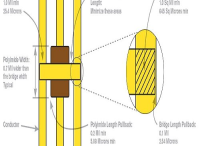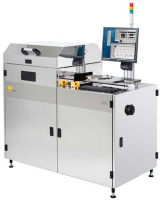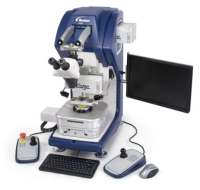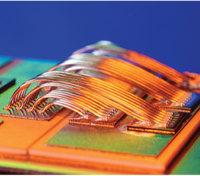Applied Thin-Film Products - Design Guidelines
To simplify the process as much as possible, ATP offers design guidelines on a range of topics. Information on their standard manufacturing dimensions and tolerances can help at the very early stages of the customer design, knowing what is achievable using standard materials processes and thereby minimising costs. Detailed CAD pointers allow customer designs to be imported directly into ATP's in-house CAD system.ATP's thin film design rules contain the fundamental design rules that must be followed in order for the product to be compatible with ATP's processing techniques. ATP also offers customer assistance by defining the design rules for laser trimming TaN resistors on thin film circuits.
As a reference to the thermal performance of TaN resistors, ATP has produced data that gives the circuit designer an insight into the surface temperature distribution both through an alumina substrate and across a square resistor. In addition, a series of equations is available that investigates the aging equation of TaN resistors.
Just as with TaN resistors, ATP offers similar assistance when working with Polyimide bridges, with a complete set of design rules available for the design stage of the circuit.
For aluminium nitride substrates, thermal dissipation is rarely an issue! However, this is not always the case with alumina substrates. Track width and thickness assume much greater importance for alumina, and so ATP offers information on safe current limits for both gold and copper tracks on alumina substrates, assisting the designer in choosing a safe bias current level.
12345PreviousNext
ATP Thin Film Circuits Design Rules
File
Standard Dimensions and Tolerances
Download
File
CAD Data Guidelines
Download
File
Thin Film Circuit Design Rules
Download
File
Laser Resistor Trimming Design Rules
Download
File
TaN Resistors - Thermal Performance and Aging
Download
File
Polyimide Bridge Design Rules
Download
File
Safe Current Limits Guidelines
Download
Visit the Inseto (UK) Ltd website for more information on Applied Thin-Film Products - Design Guidelines






